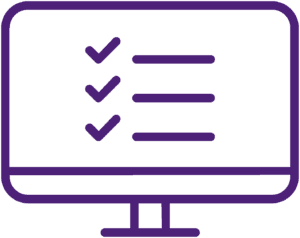Welcome to nursing! If it’s your first assignment, we wish you all the very best.
Here are 52 tips (not in any order) for nurses who are new to the industry.
They have been gathered from experienced nurses on our roster and from around the world. Some of these are essential, while others are “best practice” tips and advice.
Don’t just grab the first nursing job that’s available
When you work with Nurses Now, take your time to figure out your priorities and focus. There will always be positions available, but think about your circumstances and select the work that suits you best. Our agency nurses reap the full benefits of this inbuilt flexibility.
Ask questions and ask for help on the job
If you’re new to the job, or new to a facility or team, it’s important to get up to speed as quickly as possible. But nobody is expecting you to hit the ground running immediately and instantly gel with your colleagues and the tasks at hand. Focus on your job and your skills and your individual role, making sure you don’t take on more than you can handle.
Get the most out of your peers and mentors
Develop a “go-to” team of support staff at your workplace who you can learn from and bounce ideas off. Nursing is about teamwork and working together to provide the best possible care to patients. Identify the people in your team who make you feel included and who you can work with to become better at your job.
Be humble
It’s important to be good at your job and know what you’re doing. But watch and listen. Observe the experts. Learn from them. Don’t be too quick to act on instinct. Avoid errors by taking on board the advice of your colleagues. You might think you know a lot, but encourage open discussion and put your ego aside on the job.
Bond with your team
This can be tricky for an agency nurse who quite often is only at an individual workplace for a short period of time, before moving on to another location. But while you are on staff, wherever you are, look to foster relationships with your peers and managers. Don’t be aloof. The nursing world is organic and good connections lead to more job offers, an improved working environment and further learning opportunities.
Be respectful to yourself and others to earn respect
Maintain professionalism at all times. Being honest with yourself and with others is crucial. Your feelings and words will be more respected if they are in line with each other. Many people pretend to be fine, even when they aren’t. Try to be as open and honest as possible. If others interpret your actions incorrectly, it is difficult to gain their respect.
Know and follow nursing etiquette
This follows on from being professional. Carry yourself properly, wear your uniform proudly, tend to your appearance, know when to speak to senior staff, and display exemplary manners when around your team. When you make an effort, the right people notice you.
Seek feedback
You’ll get a lot of feedback in nursing. Plenty from your superiors, and just as much from patients. It won’t always be constructive. But it’s important to continue asking the important questions that will improve your job. Don’t be left wondering. Ask how you did and how you can improve. Communication helps you become a better nurse faster.
Offer feedback
Communication should always be a two-way street. Your team, healthcare centre and Nurses Now all rely heavily on your feedback to adjust conditions and processes. Let us know what is working for you and what isn’t, so we can improve our services.
Understand your workplace policy and procedure guidelines
There are general rules and practices for most healthcare centres and facilities, but some have their own policies and procedures in place which are unique to them. Make sure you are across them to avoid any unnecessary mistakes or misunderstandings.
Learn to be assertive
While it’s important to stay humble, there will be times when you do need to speak up. If you see a problem developing or you pick up on an error, don’t be afraid to take charge in the moment or alert someone higher up immediately. Let your nursing skills take over in these situations, making sure you don’t let bad situations or practices slide.
Stop complaining and remain calm
Go into work with a positive attitude. Don’t let events and situations and people drive you to be that colleague who is forever whinging about something. Accept the situation and move on. Stay calm, because your patients need you and they will notice when you are stressed.
Expect the worst, but hold your integrity
Nurses will see a lot in their lifetime, so it’s better to be prepared for those worst-case scenarios. It’s important, though, not to let things change you too much: don’t become too jaded, cynical, overly sarcastic, or bitter. You’ll need as much light and shade as possible in your personality mix to skilfully navigate the tricky waters of the nursing industry. Stay grounded and protect yourself from becoming a person you may not like down the line.
Stay away from negative people
One thing is for sure: If you gossip, things will come back to bite you later. If you are an agency nurse who moves around, you are less likely to be bothered by the personalities of people around you. But the best practice is to stay true to yourself, and don’t become known as a workplace gossip or downer.
Educate the patient and the patient’s relatives
This is an important one. As a nurse, you have the power to make a difference in a patient’s life and this can come in the form of explaining their situation and ways they can improve and prevent further problems. The patient’s family will likely be in a heightened state of mind, so any way you can put their minds at ease would be greatly appreciated.
Never lie to your patient
This can get you in a whole heap of hot water. Be straight with your patient. Don’t sugarcoat things to make them feel better, by giving them false hope. Be honest and clear and they will respect that more. Patients have a right to know their past and present medical status and to be free of any mistaken beliefs concerning their conditions. Patients should be able to make informed decisions based on honest information. Open and honest dialogue is critical to effective care. But it is okay to provide information in smaller doses. And always be compassionate.
Listen to your patients
While caring for patients, you can learn a lot about their symptoms and state of mind just by listening and observing them. Often, they provide clues which will aid in their treatment. Don’t just nurse on auto-pilot. Every patient is different, so tune your senses to each individual frequency. Good nursing is about listening to and understanding your patients.
Cut your patients some slack
Invariably you will have to deal with difficult patients – indeed, some are in your care due to their own negligence. They’re angry and scared. But everyone you treat is hurting, or in pain, or dealing with trauma in some form or another, and because of this, they may act out or prove difficult to care for. Be understanding and patient with them.
Work on your poker face
Don’t give away too much to your patients. Learn to disconnect your emotions from your face. This may seem counterintuitive to being communicative, but in most instances, it will save you a lot of drama. You need to be a support for your patients. So, don’t lose your cool. Maintain your composure at all times. This takes practice, but you’ll get there.
Never leave a room saying you will be back in a minute
Some patients and their families will definitely start the clock, and you’ll get grief if you’re not back the instant you say you will be back. In a busy hospital situation, you will be between patients all the time – some for longer than others. Don’t give your patients false hope about a speedy return. Never give them a timeframe. But do make a note to yourself to return at some point, because you said you would. Write it down.
Learn to cope with stressful situations
Again this will come with time, but the more prepared you are at the start, the easier it will become. You are going to lose patients – ones you had wonderful connections with. You’re going to come across very difficult and judgmental people and you will have to cope with a lack of respect, long shifts, hospital politics, outdated tech and difficult patients, among other things. This is normal and it does get easier if you learn to cope in these situations. At Nurses Now, we are a strong team who looks out for one another. You’re never alone.
Wear really, really comfy shoes
A nurse’s job is never done. It’s a 24/7 task and each nurse must play a part. You are on your feet for most of your shift, so wear the comfiest shoes your budget can afford. If you have to take out a mortgage to protect your soles, it’s worth it. You’ll be turning on a penny too, so get ones with good grip for those inevitable slippy moments.
Wear compression stockings
Your outfit is not complete without compression stockings. These will keep the blood flowing in your legs during ward rounds or while you’re tending to patients. Combined with those really, really comfy shoes, your body will thank you at the end of your shift.
Look after your back
This is a common one. Don’t think you can lift patients on your own, or without the proper equipment. Follow your workplace occupational health and safety procedures. Ask for help and protect your back in all situations.
Always practice hand washing
With COVID-19 still prevalent, it’s important to maintain good hygiene in a healthcare setting. Wear masks, wash your hands regularly and thoroughly for at least 20 seconds.
Take notes
Be organised. Buy and use a tiny notebook on your rounds. Keep it to remind you of your tasks, medical chart notes, medications, and when you need to revisit a patient.
It’s okay to cheat
Congrats on passing your exams and tests. If you have a photographic memory, that is amazing, but not everyone can remember every detail of their job. So use your tiny notebook to keep cheat sheets. There’s no need to rely solely on your memory.
Learn the acronyms
If you do need to rely on your memory, save it for all those acronyms you do need to remember. There are so many in the health industry, but most are super important to know in a life-saving situation.
Other tools of the trade
Always carry a penlight in your pocket, especially during night shifts. Use a lighted or glow-in-the-dark watch too for those darker areas of your workplace.
Know your timezone
Always set your mobile phone to military time. It’s what most workplaces use in the health industry – particularly hospitals.
Be punctual
It’s no good having an amazing glow-in-the-dark or backlit watch set to military time if you turn up late for work. Set a good example. Be on time for your shifts.
Display good time management
Be efficient with your time. Learn to prioritise and delegate. Establish a routine.
Be prepared when asking for the doctor
You can’t do everything yourself. But, when you do call for help from the doctor, be clear on what is required from them. Brief them fully on the situation. Establish a strong line of communication and know your role in the process.
Don’t fully trust an IV pump
It is important to remember that even in facilities where the use of electronic devices is standard, the nurse has the obligation of administering medications correctly and therefore must be knowledgeable and competent in the calculation of doses and IV flow rates. The nurse is responsible for double-checking all drug and IV drip calculations.
Another pair of eyes is important
When mixing high-risk IV bags or meds, always ask an RN to watch you, so you know what you are doing is correct and you have a witness should anything occur down the line.
Bring two of everything
Whenever you are about to do a procedure, odds are something will break or burst or snap. Bring two of everything to avoid having to stop and leave the scene.
Pace yourself
Don’t start the night shift with a lot of sugar or coffee. Trust us on this one.
Remember to take your breaks
Drink, eat, and avoid burnout. Understand when your body and mind both need to re-charge. Don’t push yourself too hard.
Supplies are your friend
Bring bottled drinks, a packed lunch and sandwiches. The staff cafe (if there is one) won’t always be open on your shifts. Bring your own supplies and live a healthier nursing lifestyle.
Label your possessions
Paticularly your stethoscope, because these aren’t cheap. But also label your pens – these go missing often. And always keep them clean.
Go easy on yourself
Acknowledge this: Your first year as a nurse is the toughest. You are tested to your limits, by patients, by your peers and by yourself. You will get there, so don’t expect everything to be perfect. Everything is a learning process and you will improve with experience.
Times have changed
Don’t buy into the old adage that “nurses eat their young”. Nursing is a tough industry, but it is a supportive one. It has to be. With everyone sticking together and looking out for one another, this breeds a strong workplace culture. At Nurses Now, we pride ourselves on building a team of support staff around you.
Accept mistakes
They will happen. Don’t be too hard on yourself. Just remember to be fully transparent in all situations. Be honest and work hard to do the best job you can.
Build a good work-life balance
Be good at your job, but know when to switch off. Eat healthy, exercise and take your mind off work when you’re not at work. Nursing is a job, so find your down time.
Get a hobby
Find something you enjoy doing which has nothing to do with nursing.
It’s not you …
Don’t take things personally. Most of the time, patients are letting off steam. How people treat you is more a reflection on them. Take any criticism for what it is, and don’t internalise things too much. The aim should be to improve your career.
You come first
Nurses tend to put everyone first ahead of themselves. Try not to do this. Your health – particularly your mental health – is very important. In fact, you are your most important patient. You are no good to your employer if you are sick. Rest. Take breaks. Monitor your moods. Be mindful of your physical, mental and spiritual limits. Learn to say “no”.
Tomorrow is a new day
Don’t carry things over too much. Every day is a fresh start, so mark things off at the end of the day – put a line through them and attack a new day with renewed enthusiasm.
Remain curious
The best nurses know the value of continuing education. Invest in it where you can. Do more courses, learn more about your industry. Be involved.
Remember the time …
Never forget the reason why you became a nurse. This will get you through any difficult situation. Life will throw a few curveballs your way, but stay focused and true to yourself.
Pay it forward
When you are no longer a new nurse, it will be time to mentor and shape people just like yourself coming through in the industry. Support them and make their path an easy one. Empower and enable them to be the best nurses they can be.
And one of the best tips of all: Enjoy it
There are people in this world who don’t know what they want to be and never find their calling. You are playing a vital role in society and you deserve all the credit for it. You are an essential worker and it’s important to enjoy yourself as much as possible. Thank you for your continued service and good luck out there!
Related nursing support links:
- Nurse & Midwife Support is a 24/7 national support hotline for nurses and midwives, nursing and midwifery students, employers, educators and concerned family and friends. It provides access to confidential advice and referral. Call 1800 667 877.
Nurses Now supports the careers of nurses. If you’re a highly-skilled nurse or support worker, we’d love to discuss working with you. We can find you ideal roles that match your requirements and help you make a difference right when you’re needed most.



